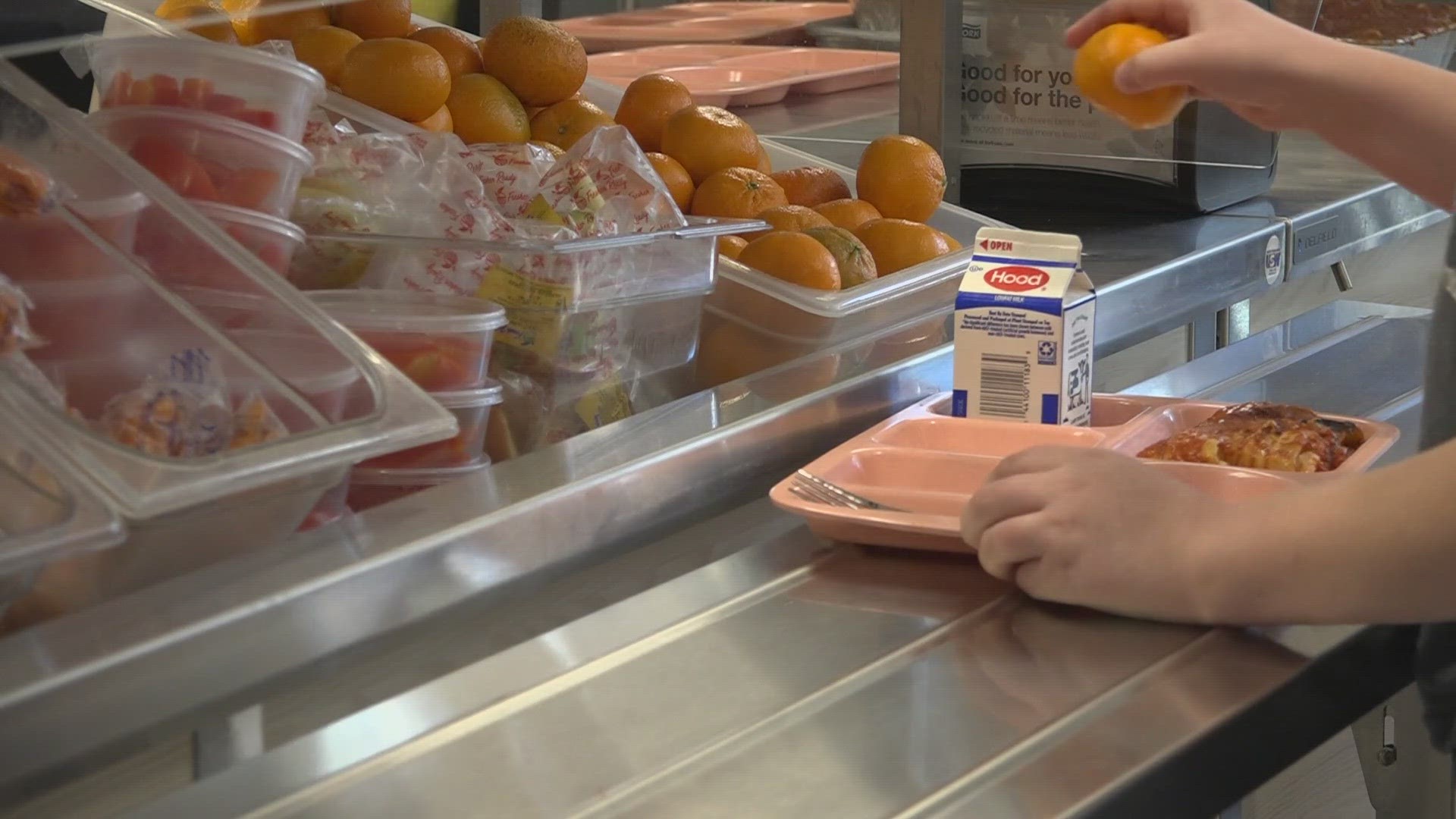SEBAGO, Maine — The state's very first Food Waste Awareness Week kicked off this week, and state officials are shining a spotlight on a concerning statistic: up to 35 percent of all locally produced food in Maine ends up in the trash, rather than on people's plates.
Gov. Janet Mills has declared this week as a dedicated effort to make Mainers more aware of the staggering amount of food that goes to waste and to inspire a commitment to change this trend.
The Natural Resources Council of Maine estimates that public schools within the state waste over 7 million pounds of food annually. To understand why this happens and how to mitigate it, researchers at the University of Maine embarked on an investigation.
As a part of Gov. Mills' declaration for Food Waste Awareness Week, it was emphasized that Maine's public schools have a pivotal role to play in reducing, recovering, and recycling food.
An example of this effort comes from Susanne Lee, a researcher with the University of Maine, who recently led an enlightening eight-week study involving four elementary schools, all dedicated to tackling food waste head-on.
By the conclusion of the study, Lee reported an impressive 20 percent reduction in food waste at these schools.
Encouragingly, two of the four schools are hosting demonstrations this week to showcase how they achieved this remarkable reduction.
Thursday's demonstration was held at Sebago Elementary School, and Friday's will take place at the Lisbon Community School.
Lee emphasized that it's relatively simple to teach students valuable habits that can be incorporated into their daily lives, such as composting and utilizing "share baskets."
"Now kids have an option, they can share it, so it's really teaching them two things: not to waste food and to share with others. If you have something that is edible, don't throw it away, put it in the share basket. So the share basket really helps redirect food, and by the time lunch is over, there is nothing left in the share basket because the milk that one student did not want to drink is a carton another student is really happy to have," Lee said.
Lee believes that schools can serve as a model for the entire community, emphasizing the importance of composting items that would typically end up in the trash.
For those interested in delving deeper into this study, more information is available online here.
These initiatives, driven by research and a commitment to change, are pivotal steps toward reducing food waste in Maine and setting an example for other regions to follow.

